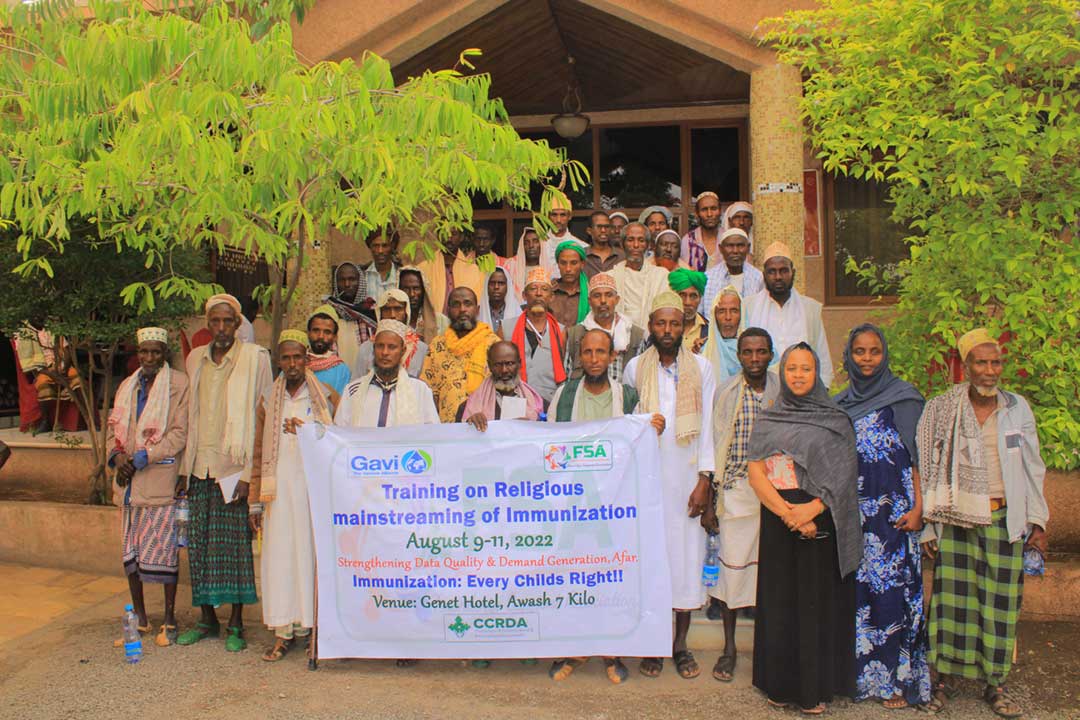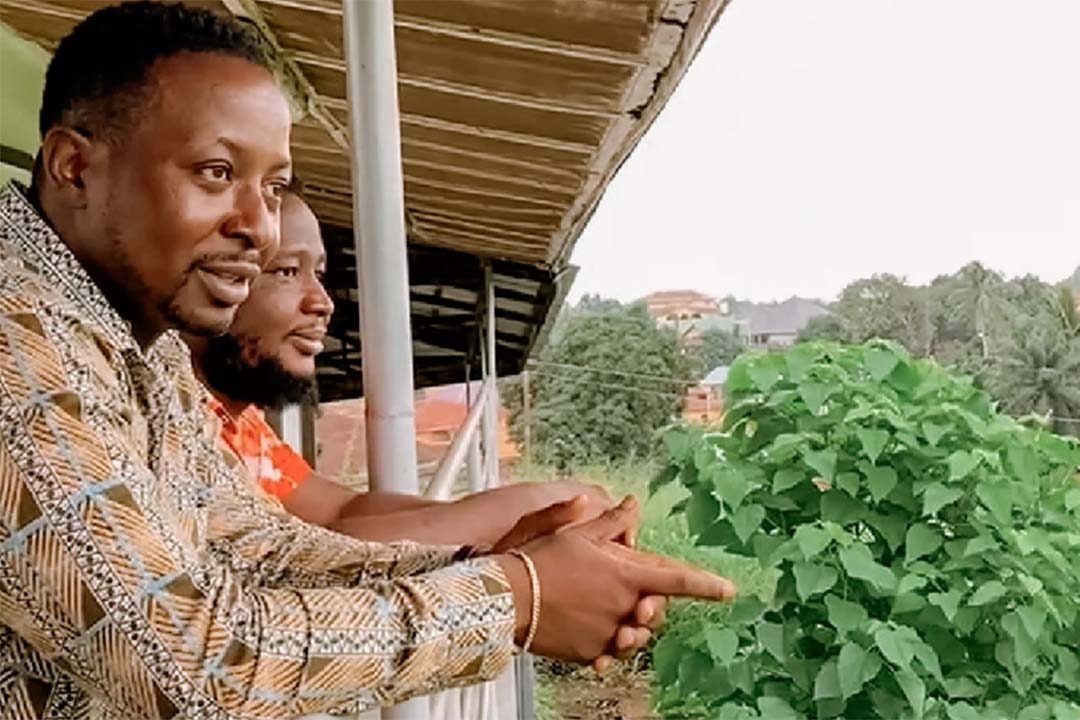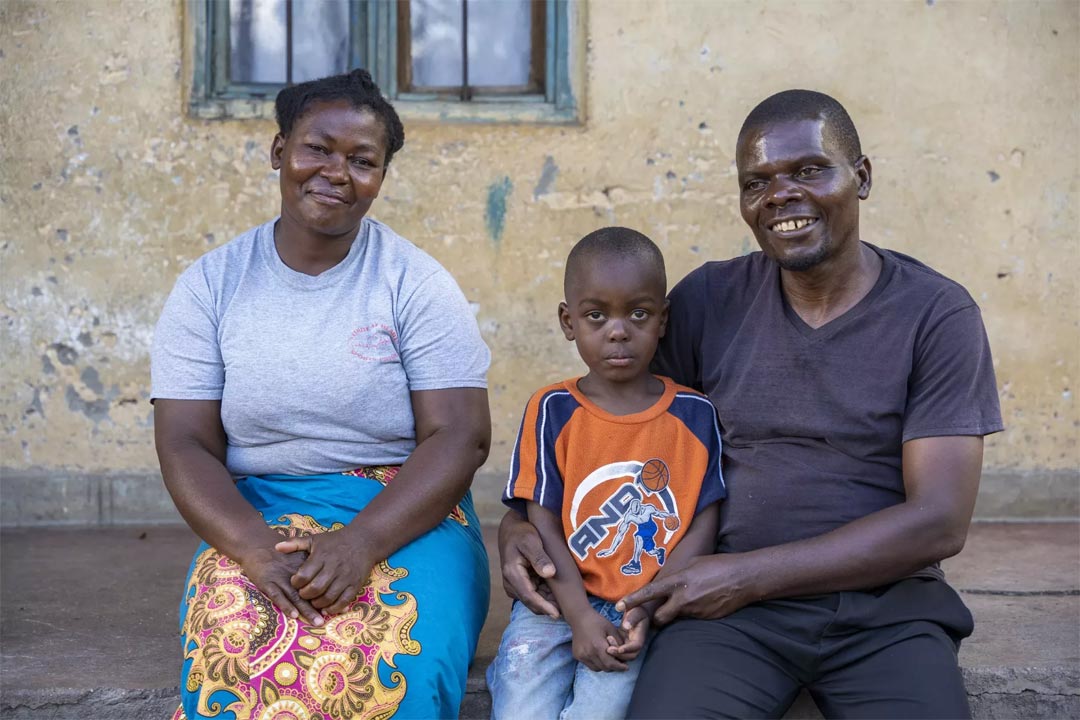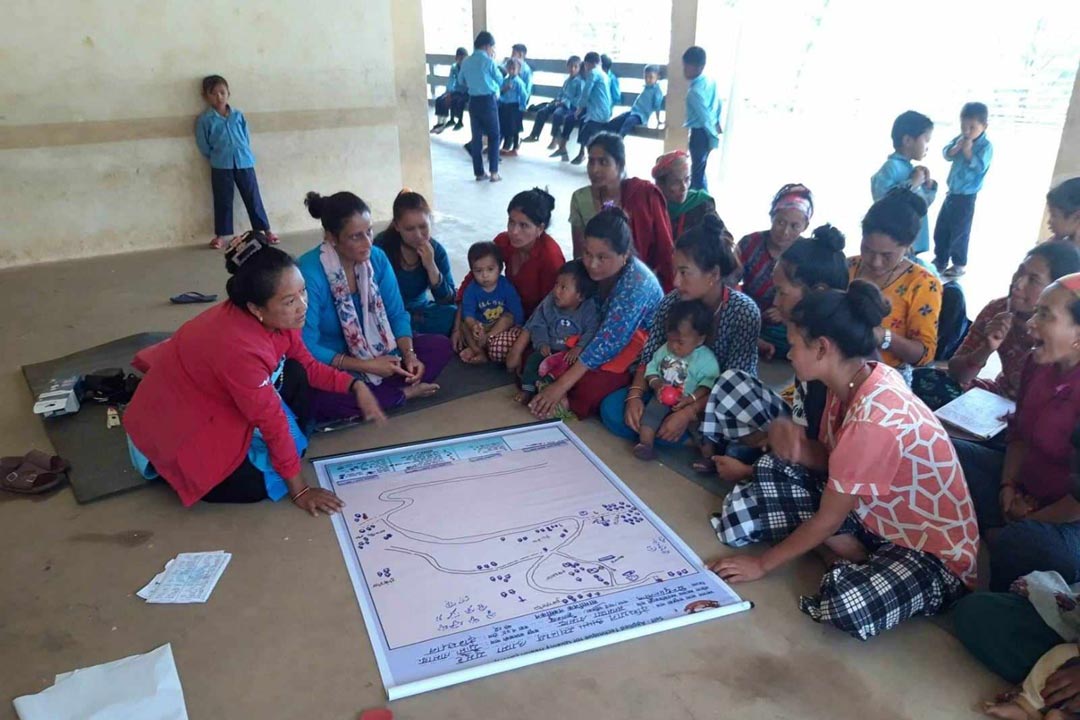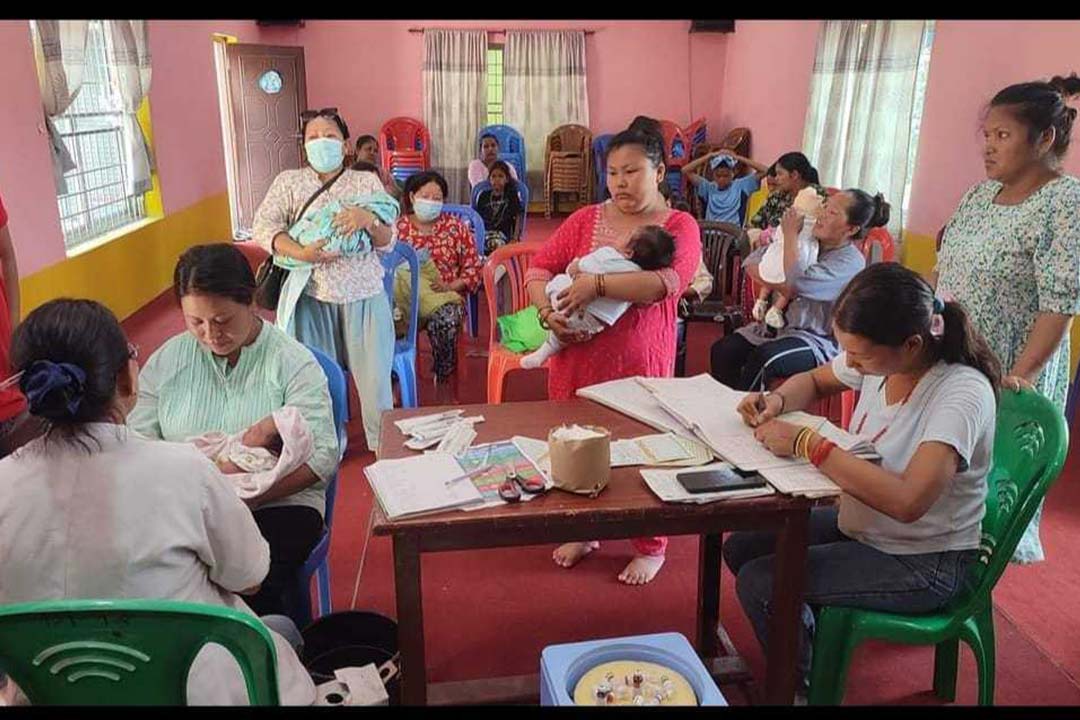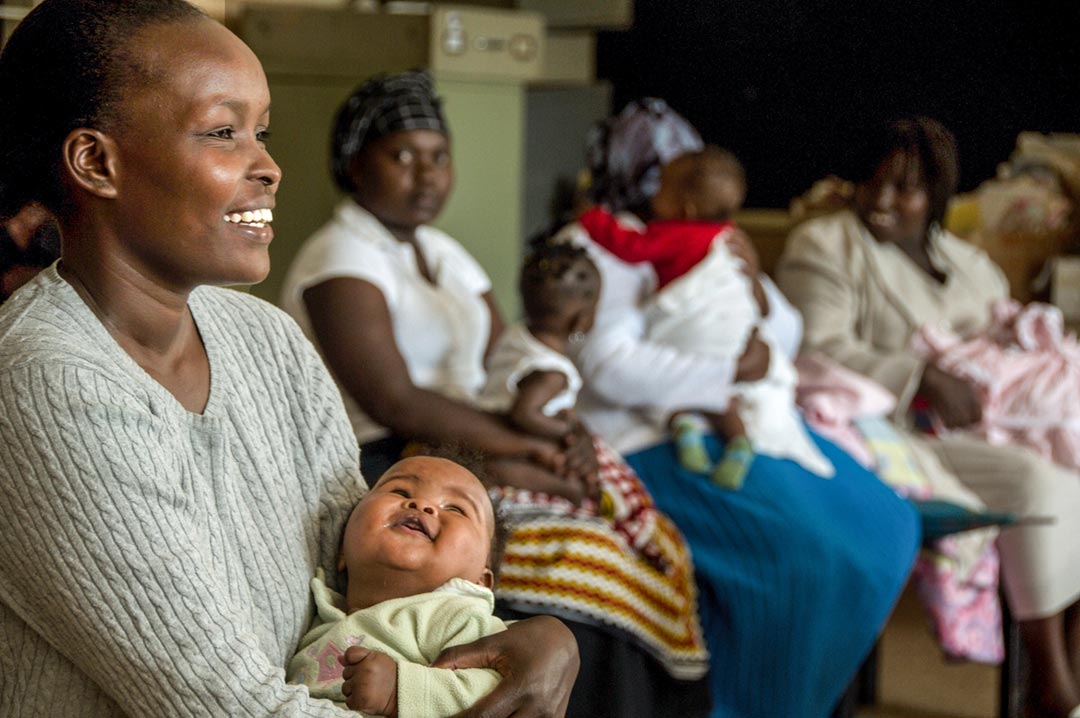In rural Nepal, an ultrasound machine builds community trust in health care
Good diagnostics build health care relationships. Good relationships help expand vaccination coverage, Chhatra Karki finds.
- 2 April 2024
- 6 min read
- by Chhatra Karki
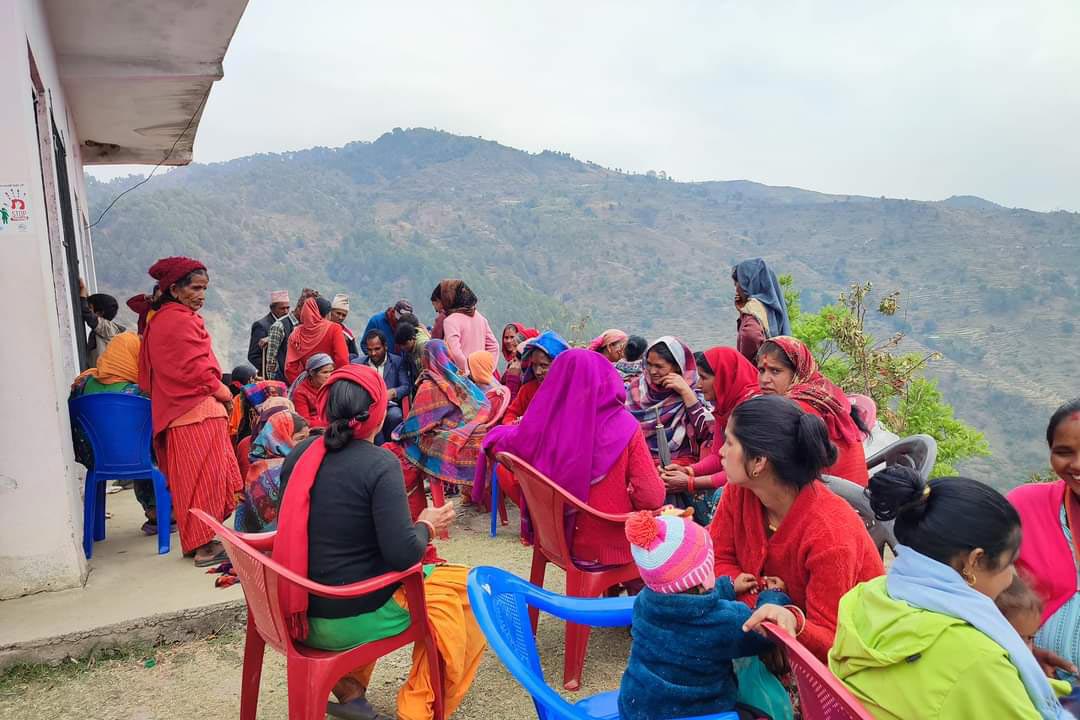
Deepa Giri, 30, from Ajayameru Rural Municipality in far western Nepal, was suffering from chronic stomach pain. She worried she'd need to spend the 1,000 rupees (about US$ 7.50) for a three-hour trip to the district headquarters for a medical check-up.
Thankfully, a recently arrived portable ultrasound machine at her local clinic, Rajul Basic Health Centre, meant she could give the bumpy roads a miss.
Bhawan Singh Kunwar, Family Planning Inspector at the District Health Office, Dadeldhura, says that these more remote districts have begun bundling of ultrasound tests for women with vaccination for their children.
"I got treated [for mild ulcerative colitis] after being tested with ultrasound. I am glad that it was possible in my place," Giri said. "A day at a hospital in the district headquarters with a caretaker kin can cost up to 5,000 rupees" – that would translate to US$ 37, a considerable sum for farming families like Giri's
Access to diagnostics bolsters trust
Giri observes that her own trust in the local health system has strengthened as more advanced diagnostic tools like the ultrasound make their way to her remote district. Recently, she says, she began working as a community health volunteer, and confidently advises women to seek care at the local facility.
"Many friends of mine went through ultrasound tests. Half a dozen of them were diagnosed with kidney stones. Uterus issues were seen in four," she said. "They have recovered after appropriate treatments following the tests. Villagers are highly satisfied with the new technology."
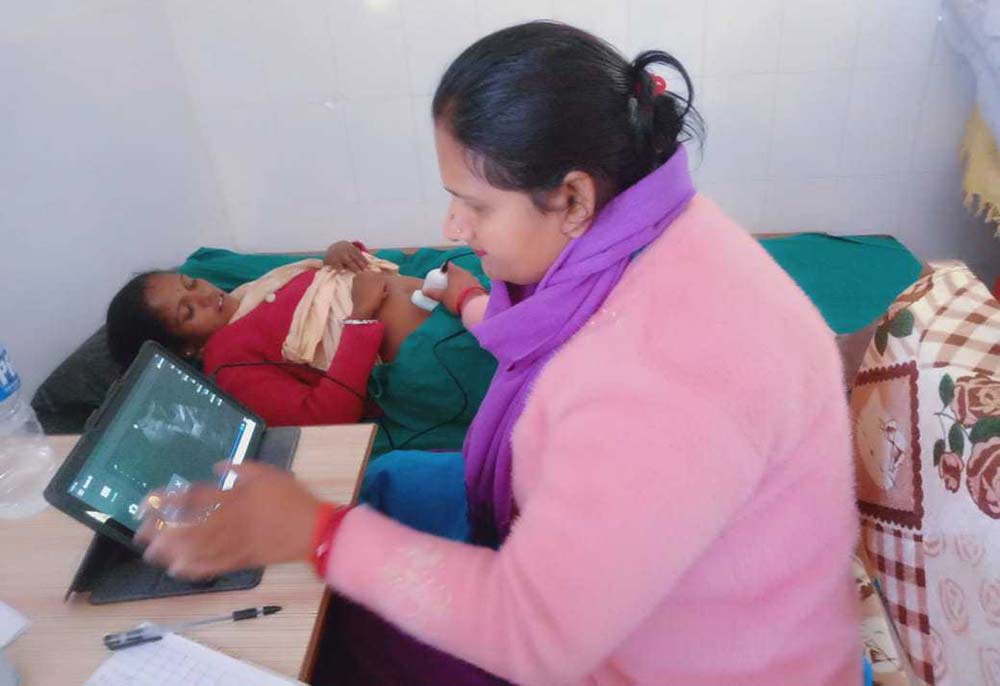
Credit: Chhatra Karki
Rajul Basic Health Centre added the portable ultrasound to its list of services in May 2023. Most often, it's put to work during monthly health camp, the most recent of which was held on 7 March this year.
"Trained medical technicians conduct monthly health camps accompanied by ultrasound tests. The monthly tests are followed by door-to-door visits of health workers with portable ultrasound to remote villages such as Bhandari village, Rajul, Hudalek and Kalakot in the ward," said Ward Chairperson for Ward Number 6, Hari Singh Bhandari.
Sita Bogati, an Auxiliary Nurse Midwife (ANM) at Rajul Basic Health Centre, is among the health workers who take services to local doorsteps. She says that pregnant women are the population to have benefitted the most from the availability of the portable ultrasound.
"Many women were in a situation to walk for three to four hours to reach the health centre. But things have changed now," Bogati reflects. "If we diagnose any serious issue, we refer them to Dadeldhura Hospital."
Apart from pregnant women, elderly women have also benefitted, she says. Manju Devi Chand, aged 85, was diagnosed with a pelvic floor disorder with the help of ultrasound technology. She underwent treatment and is now feeling fit and well. Bir Bahadur Chand, her 62-year-old son, was cheered by his mother's recovery: "Things have become more comfortable [for her]."
Bhuwan Panta, who runs Rajul Basic Health Centre, observed that the availability of the new imaging tool has spurred demand for health services in general. "People have shown up after knowing that an ultrasound facility is available in their village," he said.
A ripple effect
Bhageshwar Rural Municipality also organises ultrasound-equipped health camps in all five wards. Several villages of adjacent Parshuram Municipality are running a similar regular service.
Madan Bhat, senior Auxiliary Health Worker (AHW) at the Health Section at Bhageshwar Rural Municipality told VaccinesWork: "Using ultrasound for check-ups has mitigated risks during pregnancy. For instance, if the baby is in a breech position, caution can be taken. This has also contributed to bringing maternal mortality down," Bhat explained. "Disadvantaged communities have gained a lot from this facility."
Have you read?
Chetana Kumari Ojha, a senior ANM at Basic Health Centre in Ward number 2 of Bhageshwar, is among the health workers who have been trained in using the ultrasound machine.
"Although I work at the health centre in Ward number 2, I also oversee Ward number 1. I walk two hours for the people in that ward," Ojha shares. In this region, health workers are spread thin . "Earlier, we were not aware of the support ultrasound can provide to pregnant women. Now about 20 pregnant women from Ward number 1 and a few more from Ward number 2 have benefitted in recent health camp. Women with stomach pain also come for ultrasound check-ups."
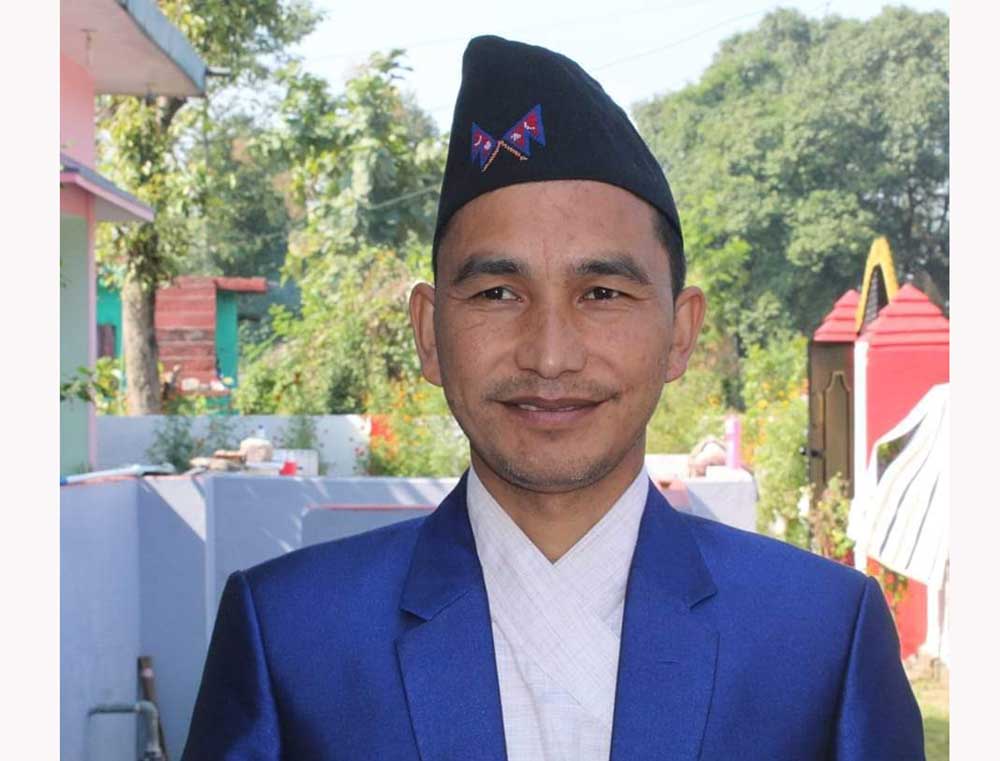
There are signs that improvement in health care services for women has also contributed to improved access to vaccination for children in the district. Bhawan Singh Kunwar, Family Planning Inspector at the District Health Office, Dadeldhura, says that these more remote districts have begun bundling of ultrasound tests for women with vaccination for their children.
"When mothers show up for a check-up, their children also show up. The children receive vaccines as a result."
– Bhawan Singh Kunwar, Family Planning Inspector at the District Health Office, Dadeldhura
"When mothers show up for a check-up, their children also show up. The children receive vaccines as a result," said Kunwar. "Vaccination is related to and integrated with other health services, including maternal care."
A part of wider reforms
In Ajayameru rural municipality, which has a population of 17,000, 2,900 of them living in Ward number 6, health camps have reportedly helped 106 people get ultrasound-diagnosed treatment so far. Twelve pregnant women and five women with "uterus issues" are among those who benefitted. However, the introduction of ultrasound technology and its application through health camps and doorstep campaigns is only a part of wider health reforms within the district.
Rajul Basic Health Centre at Ajayameru now also has a better lighting system in the maternity ward, as well as a radiant warmer – a device that maintains a baby's temperature after childbirth – new delivery beds, a set of midwifery kits , a suction machine – a medical device used for removing obstructions – and a 10-litre oxygen concentrator.
"Province Health Supplies Management Centre under the Province Ministry for Social Development, funded the procurement of the equipment," said Bhandari, the Ward Chairperson.
Planning is at the centre of the transformation of the district's health system, according to Kunwar, the Family Planning Inspector. "We plan the transportation and availability of health workers and vaccines based on the demand. With the help of timely planning, we have also set up a mechanism for vaccinating children beyond vaccination centres," he added.
Keshar Saud, head of the District Health Office, Dadeldhura, noted that health workers with an understanding of local communities have been instrumental in the transformation. "Scaling has helped people recover from serious diseases. However, someone who did not know the local Dotyali language could not have communicated the utility of ultrasound to the common people," he highlighted.
More from Chhatra Karki
Recommended for you
